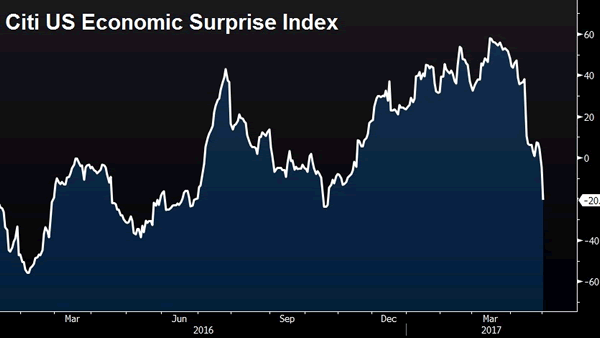The ISM manufacturing index on Monday was another sign that soft US economic data is catching down to consistently mediocre hard data. The New Zealand dollar was the top performer on the day while the pound lagged. The RBA decision is next. The Premium video on the existing and future trades will be released ahead of the Tuesday European session.

The April ISM manufacturing index slid to 54.8 compared to 56.5 expected. It’s another sentiment survey that’s fading after an early-year climb on election optimism. At the same time, hard data continues to show a middling economy. Personal spending was flat in March, missing the +0.2% consensus.
Given the lack of progress on substantive legislation or stimulus in the US, the arc of the sentiment numbers isn’t a surprise. The moderation is likely to continue until the administration proves it can turn its rhetoric into action.
Another factor is that the uncertainty on taxes could be encouraging firms to hold off on investments until they have a better idea of the landscape. So even if tax reform comes later this year, it may result in a drag until then.
For all the negative data Monday, the US dollar proved to be resilient. A 30 pip fall in USD/JPY was erased later in the day. That’s in part because of rising bond yields after the Treasury said it would increase borrowing.
Up next, we look to the Caixin China manufacturing index at 0145 GMT. The risks are skewed towards a lower number after the decline in the data released on the weekend.
The main event comes at 0430 GMT with the RBA decision. No change from the 1.50% rate is expected and the central bank could moderate its tone given the recent correction in iron ore prices. But for the most part it will be a wait-and-see type statement.
